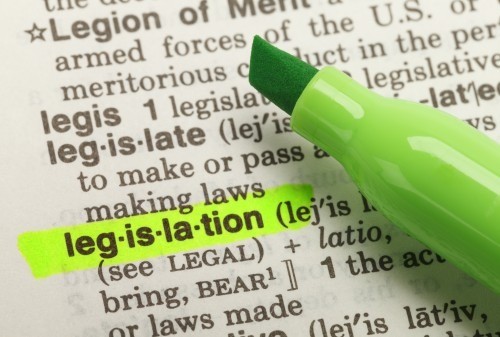Those in Congress are known as our lawmakers, but they never fail to serve as great news makers, especially when hot-button topics (such as immigration, gun control and in recent weeks, abortion) head onto the floor of the Senate or House of Representatives. We’re here to break down the different types of legislation and look through some recent legislation.

What counts as legislation?
To begin, Congress deals with two types of legislation, bills and resolutions. Bills, in short, are proposals for either enacting or repealing laws in the Senate. After the bill passes in both the Senate and the House of Representatives, the President then needs to sign the bill into effect, making it a law.
Resolutions, as mentioned above, fall into three categories: joint resolution, concurrent resolution and simple resolution. Joint resolutions are specifically used for constitutional amendments (and in our history, we’ve only had 17 following the Bill of Rights for a total of 27 constitutional amendments). After passing both the Senate and House of Representatives, it doesn’t go to the president; instead, three quarters of our states must ratify the joint resolution for it to come into effect.
Concurrent resolutions are in place to assist both chambers of Congress to work together, such as creating a temporary joint committee, but have nothing to do with laws. Simple resolutions are only used by the Senate, also to conduct internal processes, such as creating a special committee.
Recent legislation – House of Representatives
Within the past few weeks, some bills brought into the House of Representatives include those addressing equality and protections against discrimination as well as global politics regarding the UK and Russia. Below are brief summaries of bills that have entered the House of Representatives.
Stand with UK against Russia Violations Act (H.R.5428)
This bill is a call to punish those involved in the March 2018 attack against Sergei Skripal and Yulia Skripal in England by imposing sanctions and blocking property of those suspected of being involved.
Vaccinate All Children Act of 2019 (H.R.25247)
This bill still allows for medical exceptions in terms of receiving vaccinations, but asserts that for public schools to receive federal grants, all children who are medically able to receive vaccinations must do so.
Equality Act (H.R.5)
This Equality Act defines sex, sexual orientation and gender identity, and includes these characteristics under categories of discrimination or segregation. This act also prohibits discrimination in areas of public accommodations and facilities.
Recent legislation – Senate
The Senate has been dealing with issues on immigration and uncompensated survivors. Two recent legislations introduced are included below.
Fairness for High-Skilled Immigrants Act of 2019 (S.386)
This bill adjusts the caps on family-based immigrant visas and employment-based immigrant visas. For family-based immigrant visas, this bill proposes raising the per-country cap from seven percent to 15 percent, and eliminating the current seven percent cap for employment-based immigrant visas.
Justice for Uncompensated Survivors Today (JUST) Act of 2017 (S.447)
The JUST Act addresses damages from the Holocaust era by calling for the identification and return of property wrongfully seized from covered countries. “Covered countries” are defined in the bill as “participants in the 2009 Holocaust Era Assets Conference.”

There are plenty of changes and events happening in Washington D.C. that our news outlets cover, but there’s more beyond what our coverage shows us. Take a few minutes out of your day from time to time to see exactly what bills are crossing the floors of our Senate and House of Representatives. Congress.gov compiles a list of most-viewed bills to narrow your search, as does GovTrack.us. With so many tools, become more knowledgeable about our governing bodies on your own terms.

